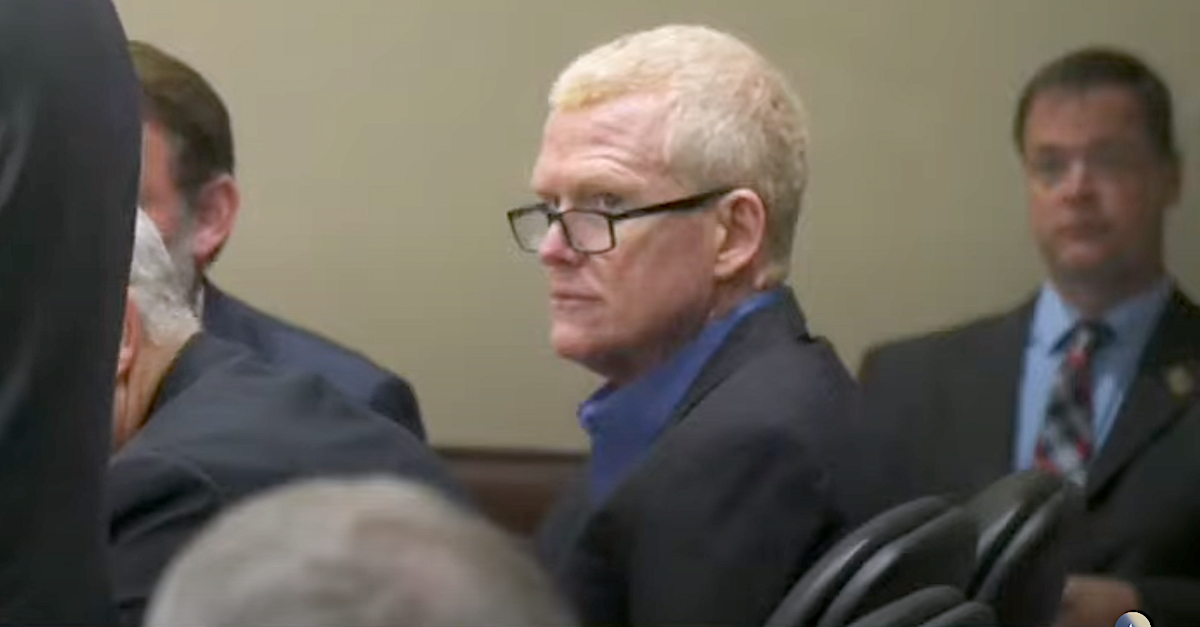
Alex Murdaugh appears in court on Oct. 20, 2022. (Image via YouTube screengrab.)
Defense attorneys for disgraced South Carolina attorney Alex Murdaugh — whose legal woes are myriad — on Thursday lambasted prosecutors for allegedly failing to explain precisely when the state believes the defendant’s wife Margaret “Maggie” Murdaugh, 52, and his son Paul Murdaugh, 22, were murdered.
“At a minimum, they’re playing a game here,” defense attorney and South Carolina lawmaker Dick Harpootlian told a judge. “They’re refusing to do [what the rules require] . . . it says [they] must give a time and a date.”
The arguments surrounded a state request for a precise Murdaugh alibi — if there is one — for the time of the killings. Such requests are allowed under South Carolina law.
The discussions were part of a series of testy exchanges in connection with a swiftly approaching trial date in the murders. During the hearing, defense attorneys suggested a potential scapegoat in the deaths of Murdaugh’s wife and son last year.
The defense also accused prosecutors of dragging out the process of investigating the case as a trial date bears down upon them.
“This idea that somehow they’re doing the best they can — they indicted him months ago, and now they’re telling us there’s still, for instance, DNA . . . they’re still looking at DNA . . . at what point do they stop investigating this case?” Harpootlian argued. “They should have stopped before they indicted him . . . they should have had everything they needed before they indicted him.”
“There’s unidentified DNA under Maggie Murdaugh’s fingernails,” Harpootlian added.
He later said he received two days ago information that he had requested in January.
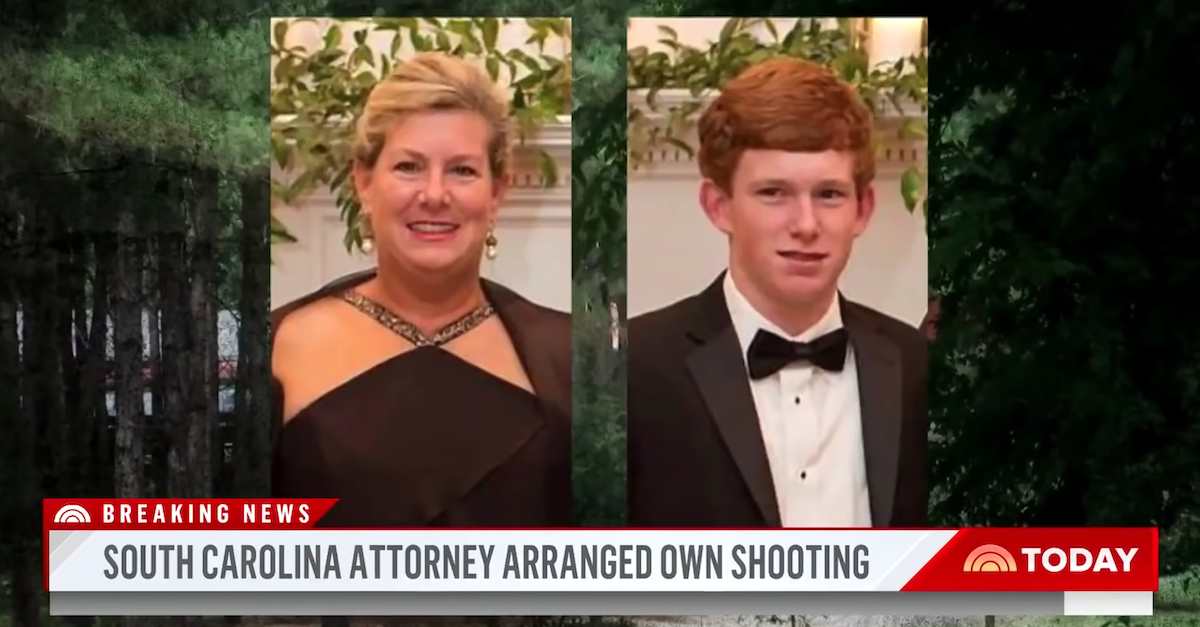
Maggie and Paul Murdaugh appear in images obtained by NBC’s “Today.”
It all adds up, according to the defense, to a series of violations of South Carolina court rules, Brady v. Maryland, the Due Process Clause, the Equal Protection Clause, and concepts of fundamental fairness.
The cure, according to the defense, was for it to stop begging the state for information and for a judge to enter an order to allow the defense to subpoena its own information in the case. The latter process would require a continuance and slow down the proceeding despite Murdaugh’s right to a speedy trial.
Harpootlian also asked the judge to establish firm dates by which the state needs to provide discovery evidence to the defense.
The defense attorney said it was ridiculous that the state hasn’t answered all of the relevant questions in he complicated and convoluted case despite being 90 days from trial. He also said defense experts were waiting to evaluate data that the state still has not provided.
“We need to get ready for trial,” Harpootlian said. “This is not trial by ambush. This is due process.”
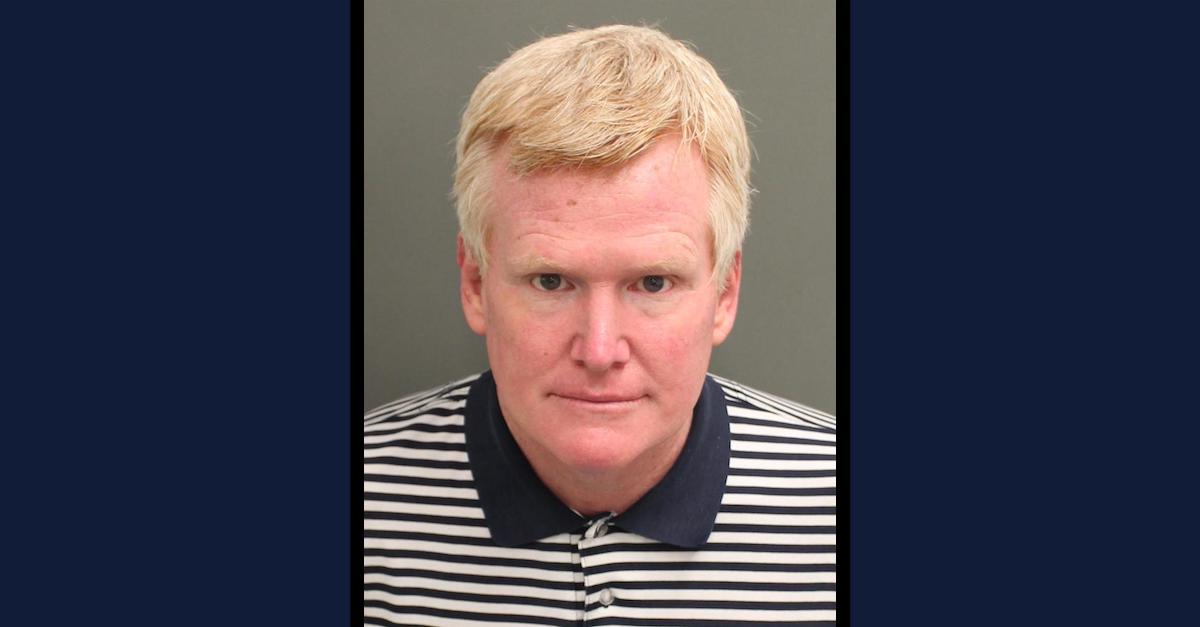
Alex Murdaugh appears in an Oct. 14, 2021 mugshot obtained from the Orange County, Fla. Department of Corrections.
Prosecutor Creighton Waters said “there is a video that shows Alex present at the scene, despite his denials, with Maggie and Paul at 8:44 p.m. not long before their phone ceased meaningful activity.”
The evidence shows Murdaugh “firing up” his car and leaving at 9:06 p.m., Waters said.
A 911 call to report the deaths of the wife and son occurred at 10:06 p.m., the prosecutor then noted.
“They know this,” Waters reiterated while referencing defense questions about when, precisely, Murdaugh is expected to give notice of an alibi. “This is a manufactured issue,” the state said of those defense qualms.
“This investigation is unlike anything anyone’s ever seen,” the prosecutor continued. “Not only does it have at its core the most important case — and that is the murder case against Alex Murdaugh for murdering his wife and son — but it also has an amazingly complicated white collar case” involving his law license and alleged financial crimes.
The defense has pointed to Curtis Edward Smith, 61, of Colleton County a potential alternate suspect. Smith was arrested when the case against Murdaugh started to unravel last fall and is currently charged with 19 felonies. However, he is not charged with murdering Maggie or Paul.
The state vouchsafed that it was in the process of testing Smith’s DNA against other samples recovered in connection with the murders. The results of those tests could either bolster or scuttle the burgeoning defense theory surrounding Smith.
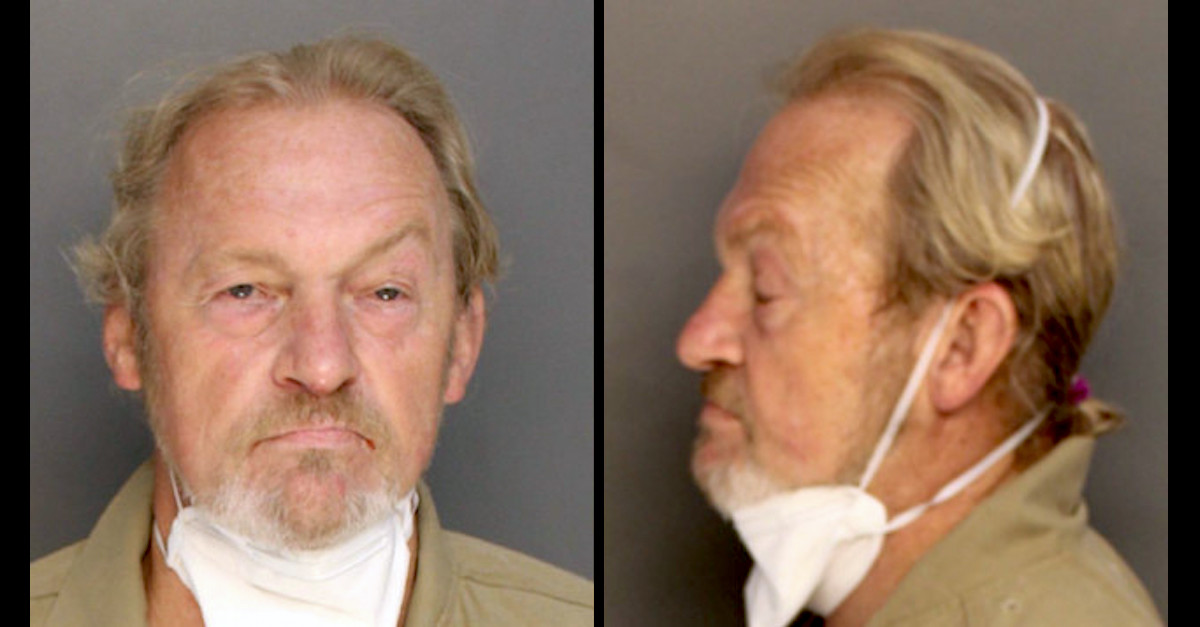
Curtis Edward Smith appears in mugshots released by the Colleton County, S.C. Sheriff’s Office.
Alex Murdaugh called 911 and reported that he’d been shot in the head on the side of a road on Sept. 4, 2021. Though he was reportedly airlifted to a hospital, he apparently told 911 dispatchers that he suffered only a “superficial” head wound when someone in a truck passed him, turned around, and pulled the trigger. The bizarre shooting occurred about two and a half months after Murdaugh’s wife Maggie and son Paul were found murdered in mid-June on Murdaugh family property. Paul Murdaugh was facing increasing legal jeopardy at the time of his death in connection with a boating crash that killed college student Mallory Beach, 19.
Smith was arrested and charged in connection with the Sept. 4, 2021 shooting, but Murdaugh later admitted to the South Carolina Law Enforcement Division (SLED) that he hired Smith to kill him, according to documents released by SLED later that month.
Smith has subsequently been described as Murdaugh’s alleged “drug dealer” and “check casher.”
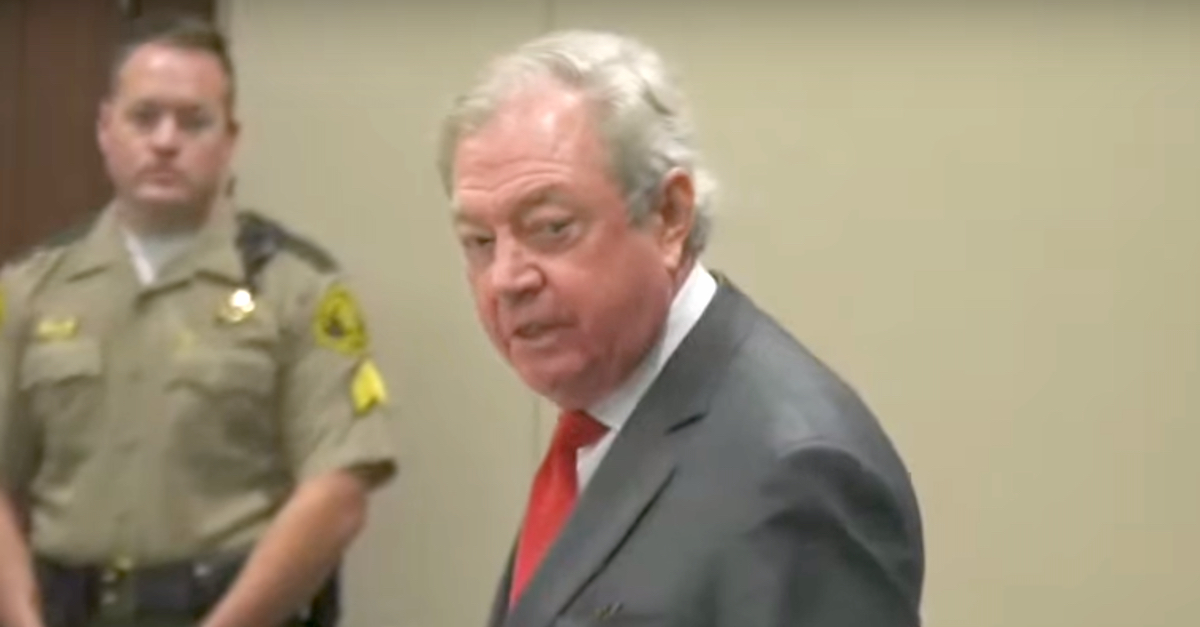
Defense attorney Dick Harpootlian makes a point in court on Oct. 20, 2022. (Image via YouTube screengrab.)
Harpootlian and co-counsel Jim Griffin have alleged that Smith failed a lie detector test when quizzed about the murders of Maggie and Paul.
In Thursday’s hearing, Griffin suggested that if the state doesn’t complete all the possible analyses, attorneys “years from now” would still be attempting to “cross-check[]” DNA from Maggie’s clothing against Curtis Edward Smith.
As the arguments continued, Waters accused Griffin of misinterpreting cell phone evidence that the state used to narrow down the estimated time of the murders.
Waters eventually offered hearty assertions that he would provide or facilitate many of the defense requests for discovery.
However, he also said Harpootlian was incorrect about some of his assertions. For instance, all but one search warrant has been unsealed, Waters said. The defense suggested that much of that information remained veiled.
Waters further asserted that the murder case “was not about Curtis Eddie Smith.”
Harpootlian countered that Smith “visited the murder scene on numerous occasions before the murders to commit illegal acts by leaving drugs there.”
“So, we know he knew how to get there surreptitiously, we know he failed a polygraph, we know his DNA, as of today, has not been tested,” the defense attorney then argued. “I’m not saying he did it; I’m just saying it certainly sounds like he could have done it, and we have a duty under our obligation to our client to pursue that until we come to some conclusion.”
Harpootlian asserted the ability of the state to convict his client of murder by proof beyond a reasonable doubt was becoming increasingly shaky.
Thursday’s hearing followed twin motions filed by the defense — and one filed by the state — on Oct. 17, 18, and 19, respectively.
The Oct. 17 defense motion sought to compel the state to hand over DNA and gunshot residue testing on Paul and Maggie’s clothes; gunshot residue of the defendant’s shirt, shorts, and hands; cell phone analyses; complete autopsy files; documents pertaining to the state’s “crime scene experts”; polygraph tests and recordings of interviews with Curtis Smith; and other items.
The Oct. 18 defense motion sought to strike the state’s request for alibi defense information. It was premised on the defense’s aforementioned assertions that it was not detailed enough to warrant a response.
“[T]he State has not provided the time, date and place at which the alleged offense occurred as required under Rule 5(e)(1),” the Oct. 18 document asserts:
The State has not produced any evidence in discovery setting forth the time oft he murders, except for the death certificates of Maggie and Paul. The State failed to identify the time it contends the murders occurred in their motion. Furthermore, the State failed to provide a specific time of the murders in response to counsel’s letter dated September 19, 2022. As a result, one must conclude that the State cannot establish through forensic evidence or otherwise the time the murders occurred.
The state responded in writing on Oct. 19 by saying it “is willing to work to ensure the defense has discovery to which it is entitled,” including “over 206 GB of information.” The information provided, according to the prosecution motion, is “far in excess of what is technically required” by court rules.
At the conclusion of the hearing, Judge Clifton Newman mostly agreed that prosecutors were complying with discovery rules and denied the defense request to compel discovery. Newman also refused to issue a broad “blanket order” that would allow the defense to issue subpoenas on its own. However, Newman did say he would allow the defense to submit individual subpoena requests to the court for consideration and potential approval.
Harpootlian then argued that the process would unfairly “telegraph” to the state certain defense strategies and tactics. When Newman challenged Harpootlian to provide case law to support his version of the way the process should transpire (e.g., via one-sided ex parte subpoena requests shared only by the defense to the judge), Harpootlian said there was none. According to him, “it’s never been an appellate issue” because “no prosecutor I’ve dealt with has ever objected to it.”
Newman said he was “not interested” in Harpootlian’s invitation to “make some law.”
“You’re going to in this case — whether you like it or not,” Harpootlian told the judge.
The defense won the ability to request subpoenas directly from the judge in spite of the judge’s initial recalcitrance.
As to the alibi issue, Newman said he would not strike the current state motion for a specific alibi because he believed it provided enough information to cue Murdaugh for a relevant response.
The judge also said that it “appears” the trial and remain “on schedule” for January provided the discovery issues are squared away.
The defense and state motions which proceeded the oral arguments are available here.
Have a tip we should know? [email protected]